For 1974-75, Walter scored 32 times on his way to 92 points in 54 games. He again played with Kamloops in the WCHL, scoring 8 goals and 12 points in 9 games.
He moved to Kamloops full time for the 1975-76 season, needing no adjustment period, as he scored 35 goals and 84 points in 72 games. He had a 40 goal season with the Chiefs in 1976-77 with 41 and totaled 99 points, second best on the club and one short of equaling his penalty minute total for the season.
For the 1977-78 season, the Chiefs relocated to Seattle, Washington and were renamed the Seattle Breakers. Walter was named as the team captain and again finished second on the team with 54 goals and 71 assists for 125 points, which earned him WCHL MVP honors. The club would be known as the Breakers through the 1984-85 season before they were subsequently renamed the Thunderbirds after a change in ownership and continue to play in Seattle today.
During the holidays that season, Walter captained the Canadian team at the 1978 World Junior Championships, where he scored 5 goals and 8 points in 6 games on his way to winning a bronze medal.
That summer, Walter, a center, was selected second overall in the 1978 NHL Amateur Draft behind only Bobby Smith.
Walter would miss the Capitals training camp due to an injury suffered over the summer playing sports with his younger brother. As a result, he would play 2 games with the Calgary Wranglers of the Western Hockey League before joining Washington, the only two minor league games of his career. Once called up to the NHL, Walter would make the jump with ease, playing in 69 games and scoring an impressive 28 goals and 56 points as a rookie, a season which saw him finish second in Rookie of the Year voting.
His fine season earned him a place on the Canadian roster for the 1979 World Championships, where he scored 4 times in 8 games.
The Capitals then made Walter, at just 21 years old, the youngest captain in league history for the 1979-80 season. He set a club record with 12 power play goals on his way to a 24 goal, 66 point season.
His 1980-81 season was a virtual repeat, as in 80 games he had an identical 24 goals and 44 assists for 68 points, along with a career high of 150 penalty minutes. After the conclusion of the NHL season, Walter again suited up for Canada at the 1981 World Championships.
Walter had a career season in 1981-82 for the Capitals, setting career highs in goals with 38, assists with 49 and points with 87. With Washington missing the playoffs yet again, Walter was available for his third World Championships in four seasons. He played in 4 of Canada's 10 games, scoring a goal and 3 assists as the Canadians took home the bronze medal.
With the Capitals never having made the playoffs in their eight seasons of existence, Washington was looking to revamp their roster and sent their captain Walter, along with Rick Green, to the Montreal Canadiens in a blockbuster trade in exchange for Doug Jarvis, Rod Langway, Craig Laughlin and Brian Engblom.
His first season with the Canadiens saw Walter's offensive game pick up where he left off in Washington, scoring 29 goals and 46 assists for 75 points, finishing just one point back of Guy Lafleur for the team lead. He also got his first taste of playoff hockey, albeit for a brief 3 games.
His style of play also changed with the move to Montreal, as after penalty minute totals of 150 and 142 his final two seasons with the Capitals, he only had over 60 penalty minutes once while with the Canadiens. Additionally, his annual playoff appearances would bring an end to his international hockey career, as he was no longer available during the World Championships as he had been with the Capitals.
From the 1983-84 season on, Walter's role with the Canadiens changed to a less offensive role, which was reflected in his point totals. He still hit 20 goals that season, but his point total was reduced to 49 and he would never reach 50 again.
He had 19 goals and 19 assists in 1984-85 for 38 points, but he was able to add 9 points in 12 playoff games.
Walter had 15 goals and 49 points in 1985-86, but broke his ankle with three games left in the regular season which caused him to miss much of the playoffs. He was able to return in time to play in 5 postseason games, which earned him his name on the Stanley Cup, as the Canadiens defeated the Boston Bruins in 3 straight, narrowly escaped the Hartford Whalers by winning in overtime of Game 7, cruised past the New York Rangers in 5 and won the championship in 5 games over the Calgary Flames.
After a 23 goal, 46 point season in 1986-87, the Canadiens went on another deep playoff run, and Walter had a fine postseason with 19 points in 17 games. Injuries limited him to 61 games and 36 points in 1987-88. For the 1988-89 season, Walter had 14 goals for his 11th consecutive season of double digit goals dating back to the start of his career. He would finish with 31 points and in the playoffs, in 21 games, he would add just 3 goals, but one was a double overtime winner in Game 3 of the 1989 Stanley Cup Finals against the Calgary Flames, the last time to date two Canadian teams would play for the Cup.
His offensive numbers dipped in 1989-90 to just 8 goals and 24 points in 70 games, his first time under 30 points in his career. Worse, he only played in 25 games in 1990-91 after breaking his wrist early in the season and was ineffective on his return, with just one assist for the season followed by 5 scoreless playoff games, which brought an end to his time in Montreal.
He returned home to British Columbia for the 1991-92 season when he signed as a free agent with the Vancouver Canucks. Named as an assistant team captain, Walter played in 67 games that season, contributing 6 goals and 17 points and another 3 assists in 13 playoff games. His 1992-93 season was another abbreviated one. Although he played in just 25 total games, they included Walter playing in his 1,000th career game on March 20, 1993 against the New York Islanders. Not offered a contract for the following season, Walter chose to retire as a player.
Today's featured jersey is a 1979-80 Washington Capitals Ryan Walter jersey from the season the Capitals made the 21 year old Walter the youngest captain in NHL history, keeping in mind that prior to the expansion that allowed the four surviving WHA teams into the NHL, players could not be drafted by NHL clubs until they were 20 years of age.
After starting life in the NHL with this style, the changes were few. While they began with names on the back of the home white jerseys, the road reds did not get names until they were required by NHL rules until 1977-78. After two seasons they were reduced one color white for the 1979-80 season. The sleeves changed from five stars to four in 1983 for two seasons and then the names became two colors again in 1987-88 and remained that way until the 1984-85 season, the last for the Capitals original jerseys.
After wearing their original white jerseys as a throwback for the 2011 Winter Classic, that jersey became the team's new third jersey for the following season. In 2015-16, the capitals would change their throwback alternate from the white version to the red version.
Bonus jersey: Today's bonus jersey is a 1978-79 Washington Capitals Ryan Walter jersey worn during his rookie season prior to being named their team captain. The difference between this and his 1979-80 jersey shown above is the original use of two color names on the back, which was simplified to one color names for for eight seasons until becoming two color names again in 1987-88.
Extra bonus jersey: Today's extra bonus jersey is a 1985-86 Montreal Canadiens Ryan Walter jersey from the season Montreal won the only Stanley Cup of Walter's career.
Montreal first introduced a white jersey for the 1935-36 season, By 1941-42, the red shoulders and twin red and blue stripes arrived and this style has remained in use essentially unchanged since then, save for the 1944-45 to 1946-47 seasons when the club added the a blue band around the chest identical to their famous red jerseys.
In today's video section, Walter is now a motivational speaker, and here he talks about having to miss most of the 1986 Stanley Cup playoffs.
In this next video, Walter takes on Boston's Mike Milbury, and it's always nice to see Milbury dropped like a sack of potatoes.

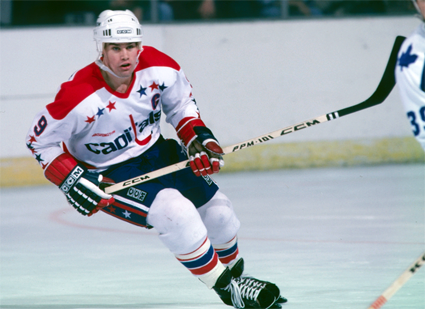
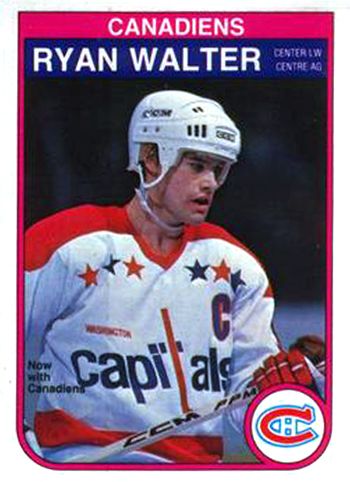
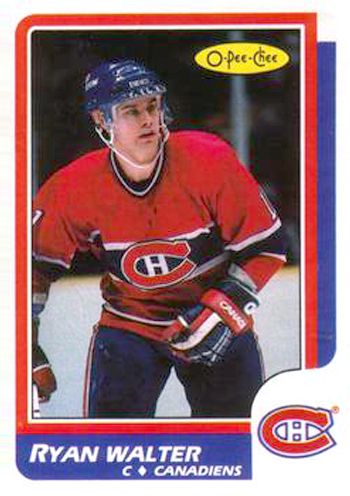
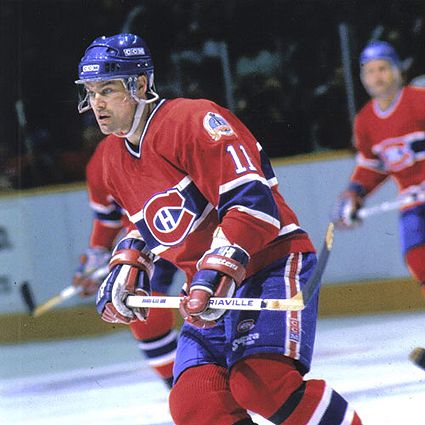
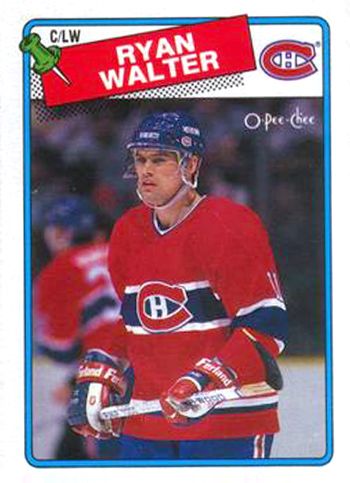
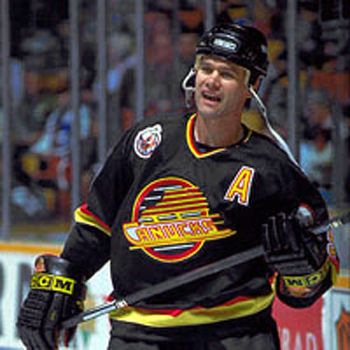
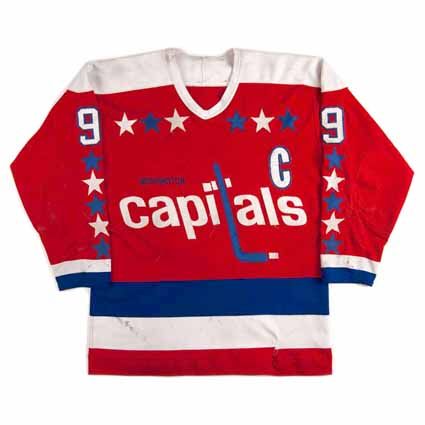
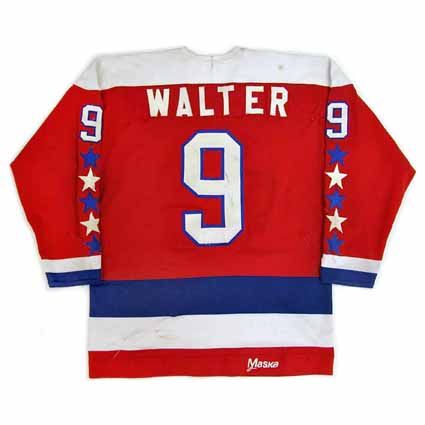
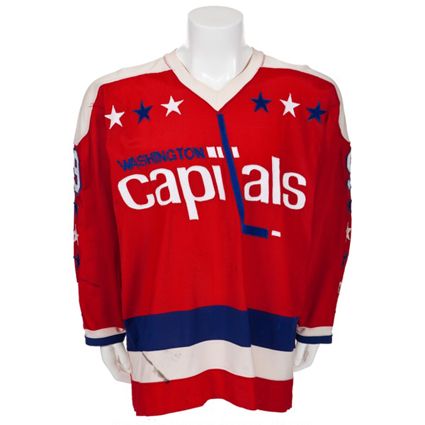
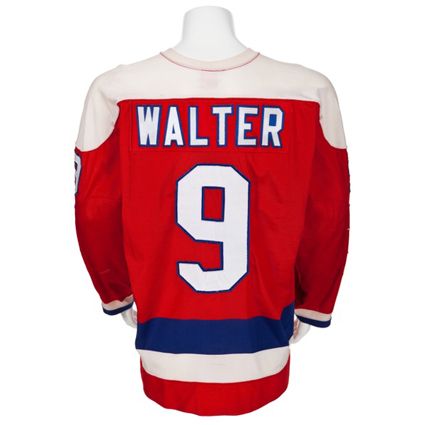
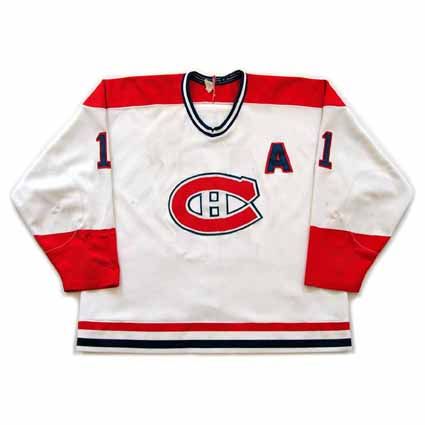
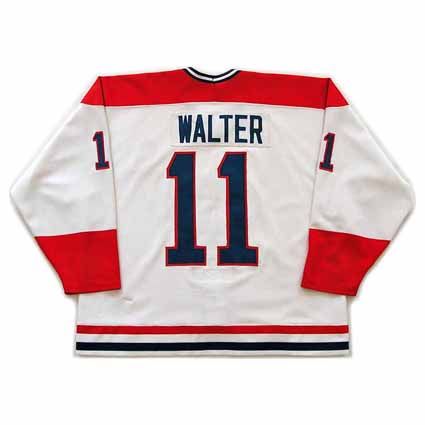










No comments:
Post a Comment
We welcome and encourage genuine comments and corrections from our readers. Please no spam. It will not be approved and never seen.